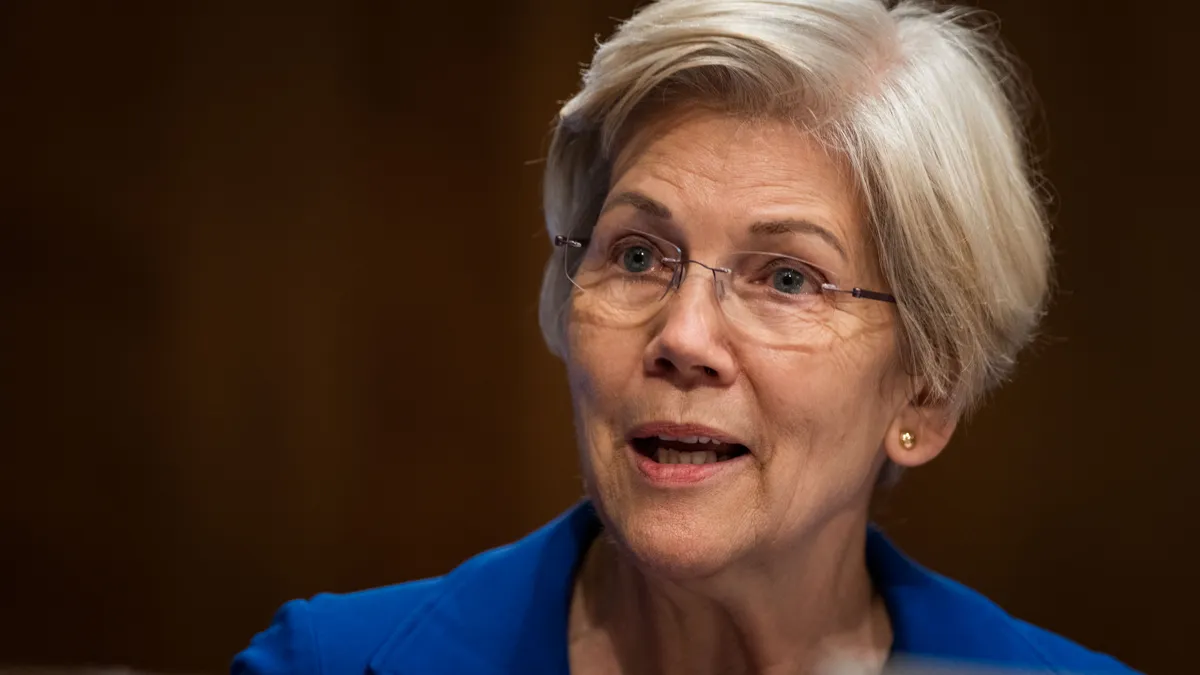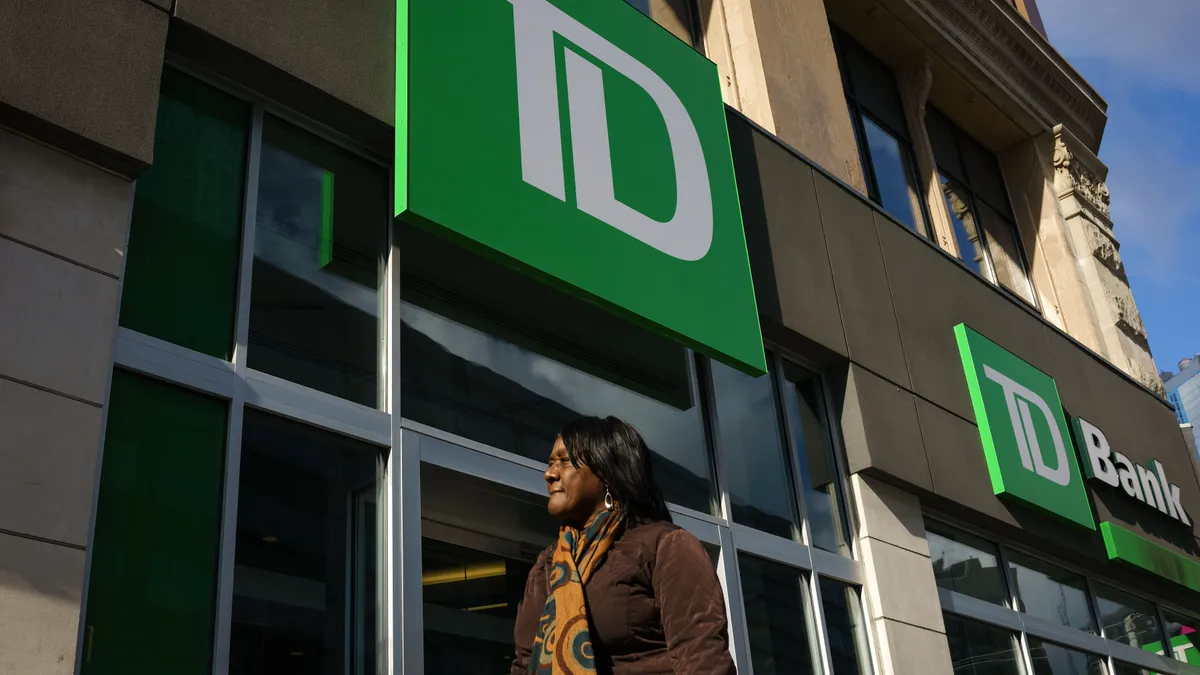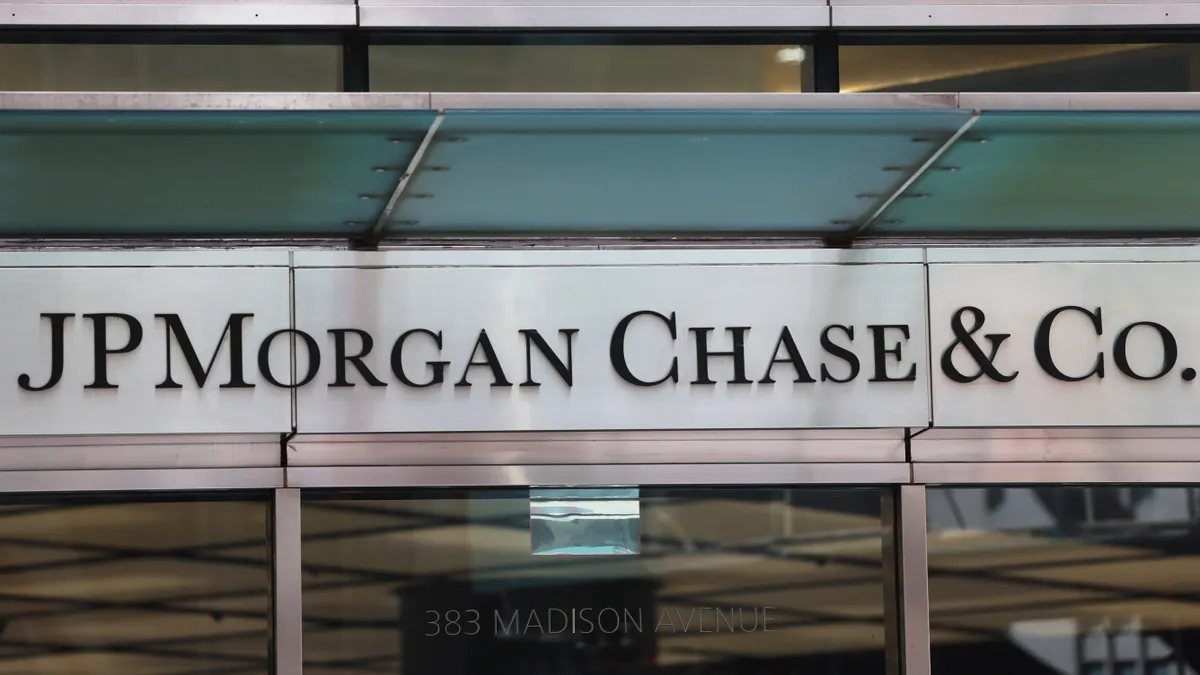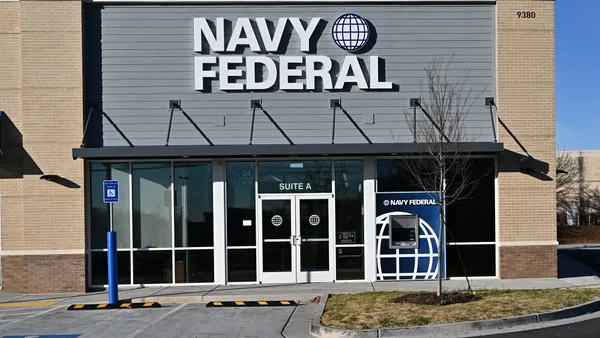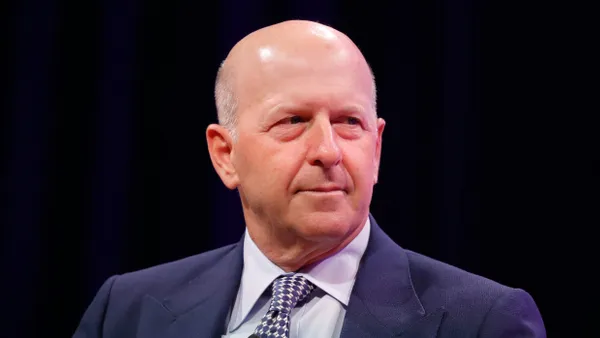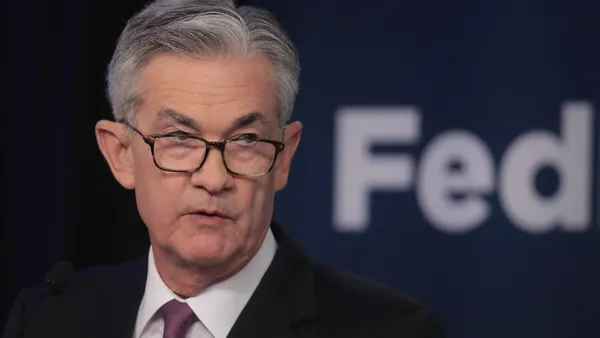It has been a year since Silicon Valley Bank and Signature Bank failed, and two senators from opposing parties pressed regulators Sunday for answers on how they responded.
Sen. Bill Hagerty, R-TN, wrote Federal Deposit Insurance Corp. Chair Martin Gruenberg to express concern regarding the sale of Signature Bank’s loan portfolio.
Meanwhile, Sen. Elizabeth Warren, D-MA, wrote Gruenberg, Federal Reserve Vice Chairman for Supervision Michael Barr and Acting Comptroller of the Currency Michael Hsu, asking for information on what the agencies did to strengthen the regulatory standards of banks with more than $100 billion in assets. Both letters requested responses by March 25.
Hagerty asked why the FDIC chose a bid from Related Fund Management in an auction of loans seized from Signature when Brookfield Property Group offered to pay 14% more for them. The move “raise[s] questions about the agency’s adherence to its legal requirements for disposing the assets of institutions in default,” Hagerty wrote.
Hagerty highlighted that although the FDIC has a mandate to preserve housing availability and affordability for low-and moderate-income people, that should not outweigh “factors that safeguard American taxpayers money from undue losses.”
He also emphasized that the auction had attracted considerable political attention, with New York City Mayor Eric Adams, a Democrat, endorsing the bid from Related and its nonprofit partners, Community Preservation Corp. and Neighborhood Restore.
“Under no circumstances should a bid be selected because it is politically favored or because a bidder — in this case, Community Preservation Corp. — professes commitments to progressive political causes,” Hagerty wrote.
Brookfield in December wrote the FDIC, arguing it should have won because it bid more than 80 cents on the dollar for $4.4 billion in affordable housing loans to apartment buildings in New York City, while Related bid less than 70 cents on the dollar, according to reports.
Warren wants answers
Warren called the regulators’ attention to a report by the Fed, which identified a 2018 rollback of Dodd-Frank protections as key contributing factors for the bank failures.
Following the SVB collapse, President Joe Biden urged regulators to reinstate rules that were retracted for banks with between $100 billion and $250 billion in assets, including annual stress tests, comprehensive resolution plans, and other capital requirements.
Major financial institutions and their lobbying groups have intensified their efforts to resist tougher regulations, Warren wrote, highlighting reports that big banks collectively spent at least $55 million on lobbying activities in 2023 and enlisted more lobbyists than in any year since 2008.
“I strongly support your agencies’ work to finalize the Basel III rule to strengthen capital requirements for the biggest banks,” Warren said in the letter. “In addition to this effort, I also urge you to follow through on the commitments you made in March 2023 to implement President Biden’s request for stronger capital and liquidity requirements, stress tests, and resolution planning for banks with at least $100 billion in assets.”
Federal Chair Jerome Powell told House lawmakers last week he expects “broad and material changes” to the capital requirements proposal, which would require the biggest U.S. banks to hold roughly 19% more capital.



